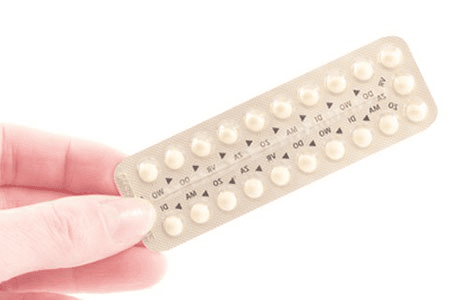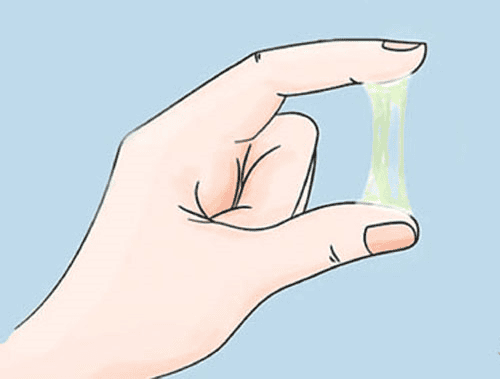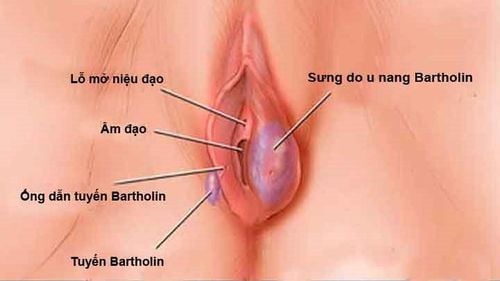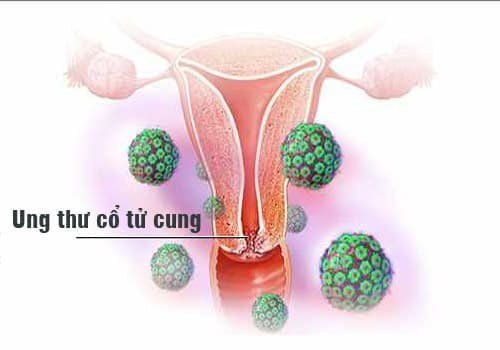This is an automatically translated article.
Endometrial cysts can cause chronic pelvic pain, endometrial cyst patients have an increased risk of ovarian cancer and difficulty getting pregnant.
1. What is endometrial cyst?
Endometrial tissue usually occurs in the uterine cavity, but for some reason these tissues grow in other parts of the body such as the fallopian tubes, bladder and intestines, so it is called Endometrial optimism . The endometrial tissue that develops into endometrial cysts is also known as endometrioma. Endometrial cysts range in size from less than 2 to 8 inches.
2. Is endometriosis dangerous?
Endometrial cysts can cause the following consequences:
Chronic pelvic pain Increases risk of ovarian cancer Makes it difficult for the patient to get pregnant Affects normal development and functioning of the ovary
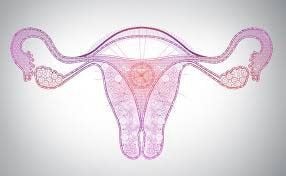
U nang nội mạc tử cung khiến phụ nữ khó mang thai và ảnh hưởng đến buồng trứng
3. Symptoms of endometrial cysts
Common signs of endometrial cysts are pain in the lower abdomen, pain during sex. However, in a few cases, the patient does not have any symptoms and is detected only during ultrasound or gynecological examination.
4. Diagnosis of endometrial cysts
To diagnose a patient with endometrial cyst or not, the doctor will perform the following methods:
The doctor directly investigates the patient's common symptoms such as painful muscles. Initial determination of the tumor by pressing on the patient's upper abdomen. MRI or endoscopy to identify the tumor.
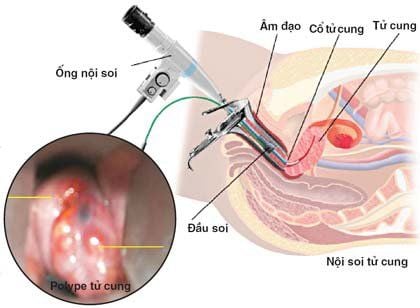
Nội soi giúp bác sĩ xác định được khối u và đưa ra phương pháp điều trị
5. Treatment of endometrial cysts
In the process of starting treatment, the doctor will pay attention to factors such as the patient's age, pain and plan to have children. On that basis, the doctor will come up with a treatment plan that is most suitable for each patient.
In case the patient has no pain and the cyst is small, the doctor will prescribe the patient a medicine to help shrink the cyst. However, this drug can cause some side effects such as menopause-like sensations, hot flashes, decreased bone density, and low sex drive. Therefore, patients who are planning to become pregnant should not take this drug.
Another treatment is surgical removal of the cyst. This method will be used by the doctor in case the patient has severe pain despite taking other supportive drugs, or in the case of the patient's cyst larger than 1.5 inches. The surgical removal is aimed at avoiding the rupture of the cyst, which will cause serious harm to the patient. Occasionally, the doctor may also perform a drain on the cyst. Removal of a cyst can relieve pain and prevent other cysts from growing. For patients who do not intend to have children, oophorectomy or hysterectomy may be indicated.
Endometrial cyst is a dangerous disease in women, if not detected and treated promptly will cause complications. Therefore, women should have regular gynecological examination every 4-6 months to detect early abnormal signs of ovarian cysts as well as other gynecological diseases.
Basic gynecological examination and screening package for female customers, has no age limit and may have the following symptoms:
Abnormal vaginal bleeding Having menstrual problems: irregular periods, irregular periods Abnormal vaginal discharge (smell, different color) Vaginal pain, itching Female clients have several risk factors such as poor personal hygiene, Unsafe sex, abortion,...
Female customers have other symptoms such as: Abnormal vaginal discharge, itching, pain in the private area, abnormal vaginal bleeding.
Please dial HOTLINE for more information or register for an appointment HERE. Download MyVinmec app to make appointments faster and to manage your bookings easily.





